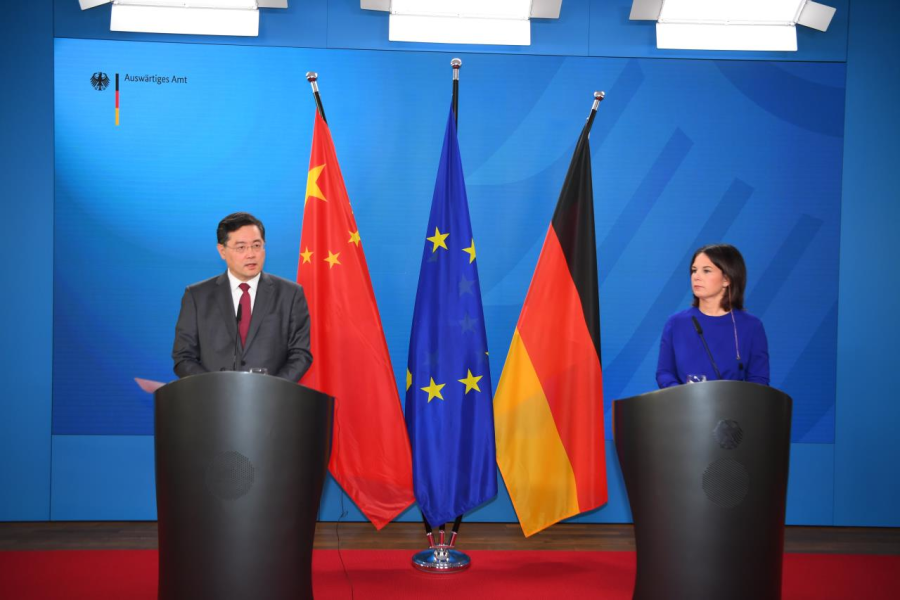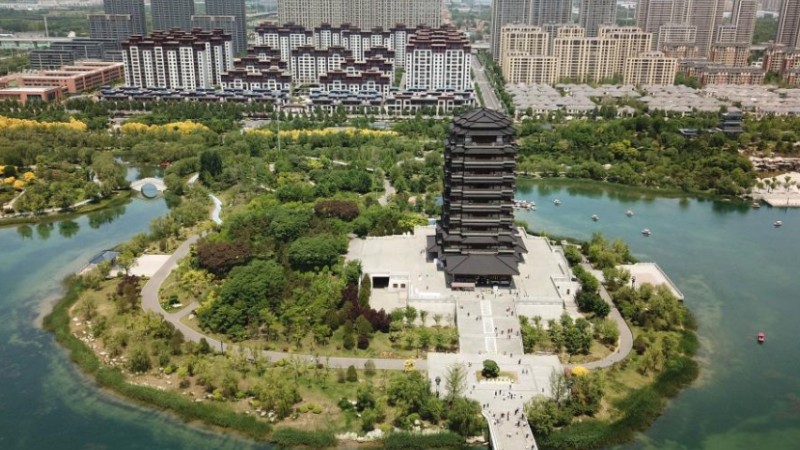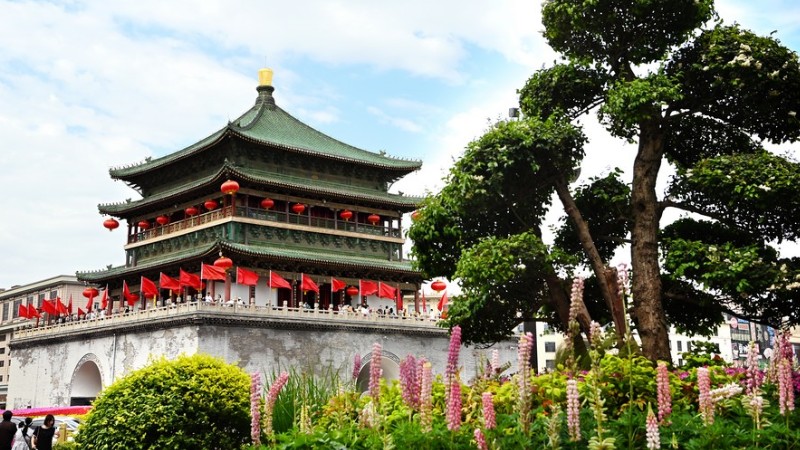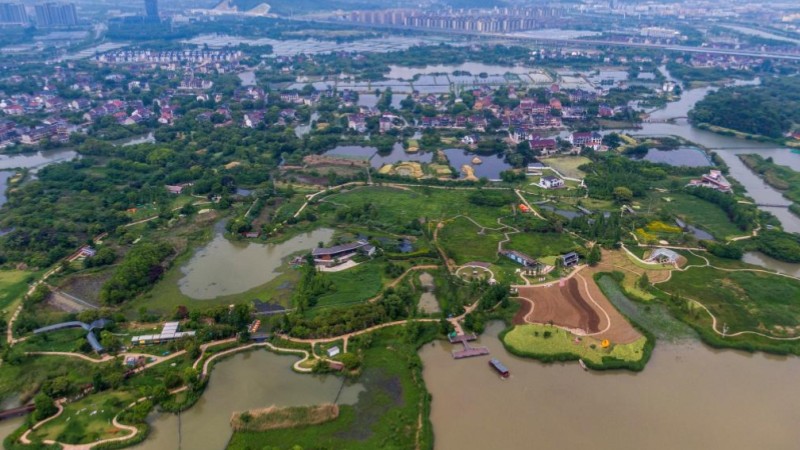Chinese officials' trips to Europe seek to prevent potential risks, enhance communication on core issues

Chinese State Councilor and Foreign Minister Qin Gang (left) and German Foreign Minister Annalena Baerbock attend a joint press conference in Berlin, Germany on May 9, 2023. Photo: The Chinese Foreign Ministry
As relations between China and Europe are gaining momentum as exchanges increase, high-level Chinese officials' visits to the continent were expected to enhance communication on core issues, and guard against potential risks. However, the complexity and delicacy of China-Europe ties was laid bare by EU's possible sanctions of Chinese firms which are accused of assisting Russia during the crisis and some European politicians' challenge of China's stance on the Ukraine crisis as well as their tough rhetoric to provoke conflicts with China.
The seemingly warming bilateral ties between China and the continent, are in fact facing severe hurdles, as European countries are still bickering about a unified China policy, said experts. At this key conjecture of "restart of relationship," it is wise for Europe to stick to strategic autonomy strategy, and refrain from rolling out hostile policies toward China, otherwise it will risk reversing the thawing ties.
Both Vice President Han Zheng and State Councilor and Foreign Minister Qin Gang are currently on visits to Europe. In remarks made during a meeting with Portugal's President Marcelo Rebelo de Sousa, Han, who was visiting the country from Sunday to Tuesday, said cooperation should be the mainstay for ties between Beijing and Lisbon, as well as China and the EU.
Qin met with German Chancellor Olaf Scholz on Wednesday. Scholz said he is looking forward to the seventh round of China-Germany inter-governmental consultation, and is preparing for it, according to a readout posted by the Chinese Ministry of Foreign Affairs. The German Chancellor also said Germany attaches great importance on China's role and influence, and is willing to strengthen communication with China on major issues such as the Ukraine crisis.
Qin said on the Ukraine crisis, China's stance is to push for peace negotiation. As long as the conflict drags on, more suffering will be caused, said Qin, urging for ceasefire as soon as possible, and realizing political settlement via dialogue and seeking a path to lasting political stability in Europe.
Qin said that strengthening dialogue and cooperation between China and Germany is conducive to injecting more stability, certainty and positive energy to the world.
After visiting on Wednesday the site where the Potsdam Conference was held in 1945, Qin said the US claims to uphold the international order whilst casting aside the Potsdam Declaration it drafted, indulging Taiwan secessionism and sabotaging the international order. The Chinese people will never agree to such behavior, he said.
Qin said we must remember the lessons history teaches us, the post-war order must be maintained, and international justice must be upheld. Qin vowed that supporting Taiwan secessionism and challenging the international order is against historical trend and is a dead end. China's reunification must be realized.
When meeting with German Foreign Minister Annalena Baerbock in Berlin on Tuesday, Qin said that China and Germany, both major countries with global influence, should strengthen dialogue and cooperation under the current international situation featured with interwoven turmoil.
The two sides should join hands to prepare for the seventh round of China-Germany inter-governmental consultation, ensure a good design, accumulate achievements and make comprehensive plans for bilateral practical cooperation in various fields in the future, said Qin.
Tests ahead
Qin and Baerbock also discussed EU's reported sanctions against Chinese companies for alleged cooperation with Russia.
Seven Chinese businesses accused of selling equipment that could be used in weapons have been listed in a new package of sanctions to be discussed by EU member states this week, the Financial Times reported on Monday.
Qin said that China does not sell weapons to parties involved in the Ukraine crisis and prudently handles the export of dual-use items in accordance with laws and regulations.
Normal exchanges and cooperation between Chinese and Russian enterprises should not be affected. China resolutely opposes long-arm jurisdiction and unilateral sanctions against other countries in accordance with its own laws, and will take necessary measures to firmly safeguard the legitimate rights and interests of Chinese companies, said Qin.
The sanctions, if imposed, will cause big friction between China and the EU, as China will surely slap back with countermeasures, Sun Keqin, a research fellow at the China Institutes of Contemporary International Relations, told the Global Times.
Sun said such a hostile move, if true, will not only affect bilateral ties but also comes at a time when European countries are increasingly betting on hope to join hands with China to push for peaceful negotiation between Russia and Ukraine.
Cui Hongjian, director of the Department of European Studies at the China Institute of International Studies, believes the sanctions mirrored Europe's "carrot and stick" policy on China, which is to cooperate where interests converge and play tough on China in conflicting areas.
Experts warned that when the wound of the tit-for-tat sanctions between China and the EU over Xinjiang is yet to be healed, the new round of sanction could deal a heavy blow to bilateral ties, and thwart cooperation between China and Europe on solving the Ukraine crisis.
On the Ukraine issue, Qin elaborated on China's view, stressing that China's consistent position is to facilitate talks for peace, and to work for the broadest common understanding in the international community for settling the Ukraine crisis. European countries should address both the symptoms and root causes of the crisis, and make efforts for the restoration of peace and security.
Challenging China's stance on the crisis, Baerbock was quoted by media as saying that "neutrality means taking the side of the aggressor, and that is why our guiding principle is to make it clear that we are on the side of the victim."
As the crisis dragged on so long, Germany still failed to grasp China's proposition on this issue, and has always tried to impose its stance on China, Cui told the Global Times. He said when China's effort in promoting peaceful negotiation is winning wider recognition internationally, Baerbock's remarks appeared outmoded; and said the German foreign minister is deliberately showing toughness.
Risk-prevention trips
After Portugal, Han will visit the Netherlands, and Qin is also scheduled to visit France and Norway in the coming days.
The "restart" of China-Europe ties has entered what experts called "fast lane" since high-level European officials visited China in waves since the end of last year. However, debate about a unified China policy also started to pick up among those countries.
After his visit to China last month, French President Emmanuel Macron urged Europe to reduce its reliance on the US and to be cautious about being dragged into a conflict between Beijing and Washington over the Taiwan question. He also noted that Europe should not blindly follow the US in its rivalry with China.
In a conflicting statement, Scholz on Tuesday urged the European Union to reduce its reliance on China, accusing the government in Beijing of increasingly acting as a rival and competitor rather than a partner, Bloomberg reported.
Almost two weeks after her trip with Macron to Beijing, President of the European Commission Ursula von der Leyen said in a speech that China's plan to pit European Union countries against each other in order to advance its own geopolitical interests is already "in action." She called on EU countries to come up with a new unified strategy on how to deal with China.
Chinese experts slammed this "divide and conquer" remark, saying that the division is in fact growing within European countries, as some have woken up to US' coercion and tactics of sacrificing Europe's interest in the face of the Ukraine crisis; although some are still willing to be swayed by US influence.
Qin told Baerbock it is worth noting that some countries are launching a "new Cold War." They have been breaking international rules, stoking ideological confrontation and bloc confrontation, attempting to decouple with others and sever supply chains, abusing the monopoly power of their currency to impose long-arm jurisdiction and unilateral sanctions on other countries.
Qin warned that the "new Cold War," if initiated, would harm not only the interests of China, but also EU's.
China-Europe relations, which seem to be warming up, will face multiple tests. High-level Chinese officials' visits at the moment, partly serve to prevent a possible crisis, such as warning Europe about the reported sanctions, Wang Yiwei, director of the Institute of International Affairs at the Renmin University of China, told the Global Times.
In general, the communication between high-level Chinese and European officials will help Europe to shake off their countries' biased and subjective view on China, and explore a new model for China and Europe to communicate and interact in the future, said Wang.
Photos
Related Stories
- China resolutely opposes unilateral sanctions: FM
- China concerned with EU's "de-risking" allegations: FM
- China's diplomacy brings about 'global effect,' to meet world's need for peace, certainty, and recovery
- European lawmakers call for autonomous, cooperative EU approach to China
- Strategic autonomy brings respect, friends: Chinese foreign ministry
- EU foreign policy chief to visit China
- Beijing supports EU's role in Ukraine political settlement
- Chinese premier meets European Commission president in Beijing
- Macron visit a test of the EU's strategic autonomy from Washington
- Xi holds trilateral meeting with Macron, von der Leyen
Copyright © 2023 People's Daily Online. All Rights Reserved.









